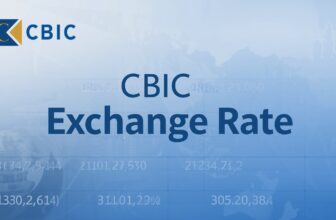
Unveil the process of safeguarding against fraudulent practices in Forex. This guide empowers traders with insights on identifying, reporting, and protecting against forex scams, ensuring a secure trading environment for all.
Report forex scams to regulatory bodies like the CFTC or SEC. File complaints with local authorities, provide evidence, and notify your broker. Utilize platforms like Better Business Bureau or Action Fraud for further action.
Key Takeaways:
- Identify signs of potential forex trading fraud, including promises of high profits and requests for personal information.
- Be cautious of persuasion tactics used by scammers, such as creating a sense of urgency and building credibility.
- Research the company’s registration status and performance record before participating in forex trading.
- Seek advice from a licensed financial advisor to ensure informed decision-making.
- Contact the appropriate authorities, such as the CFTC, to report suspected fraud or file a complaint.
Overview: How to Report a Forex Scammer
The forex market carries significant risks, and there has been a rise in forex trading scams. It is important to be able to identify potential fraud and know how to report it. Signs of a possible fraudulent sales pitch include promising profits from known news, referrals from friends or community members, and requests for personal information. Persuasion tactics often involve dangling the prospect of wealth, building credibility, and creating a sense of urgency. Red flags to watch for include promises of no “bear” market, claims of trading in the interbank market, requests for quick cash transfers, and difficulty in obtaining background information.
Before participating in forex trading, it is important to research the company’s registration status, ask about the forex market and your obligations, inquire about the firm’s performance record, and request all information in writing. It is also recommended to seek the advice of a licensed financial advisor. If you suspect fraud or have been defrauded, you can contact the appropriate authorities such as the Commodity Futures Trading Commission (CFTC) to file a complaint or report a tip.
The looming threat of scams demands a vigilant approach from investors. Detecting a forex scam requires a keen understanding of their deceptive tactics. For instance, scammers often prey on job seekers through enticing advertisements, promising lucrative returns with minimal documentation. Investors need to remain vigilant, questioning the legitimacy of offers that seem too good to be true.
Example: Consider an enticing job opportunity promising substantial returns without proper documentation. Such offers, especially those lacking a transparent verification process, often signal potential scams.
Taking Control: When You Suspect a Forex Scam
Forex trading requires investors to be vigilant, especially when suspicions of a potential scam arise. Recognizing the warning signs and taking decisive action is pivotal in mitigating risks and safeguarding investments.
Refuse Additional Funding
The first and most crucial step is to resist the temptation to inject more funds into a potentially fraudulent scheme. Scammers often employ manipulative tactics to convince victims to increase their investment, exacerbating financial losses.
Suppose an unsolicited call urges you to seize a “limited-time opportunity” by investing more money. Refusing to succumb to pressure and withhold further funds immediately puts you in control of the situation.
Document Every Interaction
Comprehensive documentation serves as a powerful tool in building a case against potential scammers. Record names, contact details, and the specifics of all communications, including emails, texts, or phone calls. This information becomes crucial in later stages of reporting and potential legal action.
Imagine receiving an email promising extraordinary returns. By meticulously documenting the email content, sender details, and any attached documents, you create a robust evidence trail for future reference.
Verify the Purported Address
Scammers often provide false addresses to create an illusion of legitimacy. Take the initiative to verify the stated address and cross-reference it with official records. This step aids in uncovering discrepancies that may confirm suspicions.
Upon suspecting a forex scam, investigate the provided address through official channels. If the address leads to a non-existent location or a residential area rather than a registered business, it raises red flags.
Cease Communication
Cutting off communication with the suspected scammer is essential. This denies them the opportunity to employ further manipulative tactics. Resist responding to emails, messages, or phone calls, maintaining radio silence to prevent additional coercion.
Suppose a representative from a suspicious forex trading platform keeps pressuring you for more information. Ceasing communication immediately halts their influence and prevents potential further financial harm.
Seek Expert Advice
In complex situations, seeking expert advice becomes crucial. Consult with financial experts, legal professionals, or even regulatory bodies to gain insights into the legitimacy of the investment and the potential avenues for recourse.
If faced with intricate forex scam scenarios, consulting with a securities attorney or a financial advisor provides expert guidance. Their insights can help assess the situation and determine the best course of action.
Report to Regulatory Authorities
When suspicions persist, reporting the suspected scam to relevant regulatory authorities is a proactive step. Providing comprehensive details enhances the chances of a thorough investigation and potential intervention.
Consider reporting a suspected forex scam to the Financial Conduct Authority (FCA) in the UK. Furnishing them with detailed documentation and information positions regulatory authorities to take swift action against fraudulent activities.
Taking control when suspecting a forex scam involves a combination of proactive measures, documentation, and seeking expert advice. By implementing these steps, investors empower themselves to navigate the intricate landscape of forex trading securely, minimizing the risks associated with potential scams.
Recovery Asset Teams: A Potential Solution
In certain scenarios, collaboration with the Recovery Asset Team (RAT) from IC3 can be instrumental. Their expertise in tracking and freezing funds stolen by scammers, as demonstrated in the IC3’s 2022 annual report, enhances the chances of recovering lost investments.
Consider a case where a victim collaborates with the IC3’s RAT, leading to the successful freezing of funds stolen by forex scammers. This collaborative effort exemplifies the effectiveness of uniting against fraudulent activities.
Usually, job seekers are targeted through enticing advertisements, and investors are lured with promises of high returns. The importance of choosing regulated brokers and knowing the telling signs of potential fraudulent sales pitches and persuasion tactics cannot be overstated.
When equipped with knowledge on how to identify, report, and protect against forex scams, investors can practise forex trading confidently. Staying informed, vigilant, and proactive ensures a secure trading experience, safeguarding investments from the pervasive threat of fraudulent activities.
What to Do if You’ve Been Scammed by a Forex Broker or Trader
If you suspect that you have been scammed by a forex broker or trader, it is important to take action. The first step is to avoid sending more money to the scammer and gather as much information as possible about the scam. This includes documenting all exchanges, noting the names and contact information of representatives, and gathering evidence such as website information and terms and conditions. Depending on the amount of money involved, it may be worth hiring legal counsel or contacting regulatory agencies to report the scam. It is also important to identify the type of forex scam you have fallen victim to, whether it is an unregulated broker, a clone firm, or a social media influencer impersonator. Finally, reporting the scam to the relevant authorities is essential. This can include filing complaints with regulatory agencies or law enforcement, as well as seeking assistance from consumer protection agencies.
Table: Types of Forex Scams
| Type of Forex Scam | Description |
|---|---|
| Unregulated Broker | A forex broker operating without proper authorization or regulatory oversight. |
| Clone Firm | A fraudulent company posing as a legitimate broker, often using a similar name or website. |
| Social Media Influencer Impersonator | An individual or group pretending to be a trusted forex trader on social media platforms to deceive and defraud unsuspecting victims. |
How to File a Complaint and Report a Forex Scam
In the event that you cannot resolve your complaint or grievance with your forex broker directly, you have the option to file a complaint with regulatory authorities. The process may vary depending on your jurisdiction, but for example, in South Africa, you can file a complaint with the Financial Sector Conduct Authority (FSCA). Other countries may have similar regulatory bodies that accept complaints related to forex scams.
When filing a complaint, it is crucial to provide as much information as possible. This includes details of the scam, communication with the broker, and any evidence or documentation you have. The more concrete evidence you can provide, the stronger your case will be.
Some regulatory authorities offer online complaint forms, making it easier for you to submit your complaint. These forms typically ask for specific details about the scam, your personal information, and supporting documents. If an online form is not available, you can often find an email address or physical address to send your complaint to.
In addition to reporting the scam to regulatory authorities, you may also want to consider reporting it to other relevant authorities. This can involve contacting the local police or financial intelligence agencies. By reporting the scam to multiple authorities, you increase the chances of taking action against the scammer and preventing further fraudulent activities.
| Forex Scam Reporting Authorities | Contact Information |
|---|---|
| Financial Sector Conduct Authority (FSCA) | Website: www.fsca.co.za Email: info@fsca.co.za |
| South African Police Service (SAPS) | Contact your local police station |
| Financial Intelligence Centre (FIC) | Website: www.fic.gov.za Email: info@fic.gov.za |
Conclusion
Reporting a forex scammer is crucial in protecting yourself and other potential victims from fraudulent activities. By following the steps outlined in this article, you can increase the chances of taking action against scammers and potentially recovering your funds.
It is important to gather as much information as possible about the scam and the individuals involved, secure your account and financial information, and report the scam to the appropriate authorities. While it may be challenging to recover funds once they have been lost, reporting the scam can help prevent future scams and hold the scammers accountable for their actions.
Remember to stay vigilant and cautious when engaging in forex trading to minimize the risk of falling victim to scams.
FAQ
How can I identify a forex scam?
There are several signs that may indicate a forex scam, including promises of guaranteed profits, requests for personal information, and pressure to act quickly. Be wary of anyone who promises high returns with little or no risk.
What should I do if I suspect I have been scammed by a forex broker or trader?
If you suspect you have been scammed, it is important to gather as much information as possible about the scam. Avoid sending more money to the scammer and consider seeking legal counsel or contacting regulatory agencies to report the scam.
How do I report a forex scam?
To report a forex scam, you can contact the appropriate authorities such as the Commodity Futures Trading Commission (CFTC) or the Financial Sector Conduct Authority (FSCA) in your jurisdiction. Provide as much information as possible about the scam and any evidence you have.
Can I recover my funds if I have been scammed?
Recovering funds after being scammed can be challenging, but reporting the scam can help prevent future scams and hold the scammers accountable. It is important to stay vigilant and cautious when engaging in forex trading to minimize the risk of falling victim to scams.

















